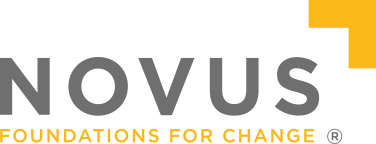The Impact of Digital Literacy on Prisoner Rehabilitation
Adult Provision Digital

How digital literacy can impact prisoner rehabilitation
A big challenge for prison education is making sure learners aren't left behind during their time in prison. Government research shows that it is most often the most vulnerable groups, including prisoners and former prisoners who face digital exclusion.
With digital technology constantly changing, being isolated from these changes can cause huge obstacles for our learners upon release. This is why at Novus we teach digital literacy through education to allow our learners to stay in the loop when it comes to digital channels and technology.
In order for our learners to integrate back into society, it is vital that they are given the opportunity to gain and expand their skills in digital literacy. More and more jobs are looking for employees who have at least a basic understanding of digital literacy. Our learners need to be equipped with the necessary knowledge and skills to be able to reintergrate back into society and find employment.
Digital skills and rehabilitation: Life after prison
Building foundations in essential digital skills and functionality allows former learners to participate in society and gain confidence to pursue further education and/or employment. Which is an important step to prisoner rehabilitation.
With the increase in hybrid working, it is essential that the modern worker has some knowledge of digital literacy. A 2019 UK Government report indicates that at least 82% of job vacancies consider digital literacy an essential requirement for candidates.
If learners aren't taught the basic foundations of digital literacy, then they will struggle to find employment which could put them at greater risk of reoffending.
Teaching digital literacy in prisons
Due to limited access to equipment and resources, as well as challenges like prison infrastructure and security concerns, implementing digital literacy in prison education isn't straightforward.
However, Novus is working hard to provide our learners with the opportunities necessary to thrive outside a prison setting. This is why we are dedicated to incorporating digital literacy into our prison education programmes.
New digital tools for educators
Introducing new digital tools such as ChatGPT and other AI tools to our prison education has allowed tutors to speed up their planning process, leaving more time to engage learners. Tutors discuss digital literacy and the AI tools they use with learners to keep them up-to-date with technology and in particular the acceleration of AI.
One of our tutors from HMP Preston, conducted a class on the technology, the history of AI and its ethical implications. Our learners shared their unique insights on the subject and made some fantastic points regarding the way AI tools could impact their lives and careers on release from prison.
Support for educators and practitioners
Research conducted by our Digital Learning Team suggest that one of the main barriers to embedding essential digital skills into courses was the lack of confidence of educators and trainers.
Since then, we have provided our educators and trainers with the necessary training and digital tools needed so that they would feel confident in embedding digital techniques into their classroom delivery and have the skills to deliver the essential digital skills qualification.
Another barrier to embedding essential digital skills into courses was access to the internet which is needed to deliver the essential digital skills qualification. HMPPS brought in Open Borders which we now use to deliver the qualification in many prisons.
Supporting our colleagues as well as our learners is essential in providing quality education. Now, our teachers and educators feel confident in digital skills, in turn providing learners the opportunity to develop their understanding of these important skills.
Action Research
Our digital learning team focused on using Action Research to support professional development amongst practitioners and encouraging the integration of these approaches into our teaching, learning and assessment of learners. The research focused on new approaches for embedding digital tools into prison education.
See how Novus helps learners on their way to rehabilitation through digital literacy and education.


